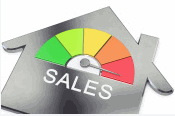Sales Metrics: What are your strategic metrics for sales?

In today’s fast-paced business environment, sales managers often find themselves overwhelmed by the multitude of tools and technologies at their disposal. While it is beneficial to have access to various metrics and KPIs, it’s crucial to focus on the metrics that truly drive success.
Understanding Sales Metrics
Sales metrics can be categorized into two main types:
- Strategic Sales Metrics: These metrics provide insights into the overall success of the organization in sales.
- Operational Sales Metrics: These metrics delve into the specifics, offering analysis to understand why strategic metrics are at their current levels.
Strategic metrics answer the ‘how’ of performance, while operational metrics explain the ‘why’ behind those numbers.
The Importance of Metrics for Every Business
No matter the industry, company size, or location, certain sales metrics are universally applicable. They serve as essential tools for business managers in gauging sales performance effectively.
1. Sales by Product
This metric assesses the performance of individual products or services in the market. Key insights include:
- Identifying your top-selling products and underperformers.
- Developing targeted sales strategies based on product performance.
- Planning for future product development based on sales trends.
- Understanding profit margins for each offering.
By analyzing sales by product, businesses can strategize on how to grow the sales of certain products or improve those that struggle.
2. Sales by Market
Different market segments yield varied profitability. Measuring sales by market helps businesses to:
- Identify profitable market segments.
- Allocate resources strategically to maximize sales opportunities.
- Assess market performance to inform future targeting strategies.
This strategic metric is critical for identifying new opportunities for growth in specific markets.
3. Sales by Location
For organizations operating in multiple geographies, this metric is immensely beneficial. It allows businesses to:
- Compare sales across various regions.
- Identify regions offering high sales potential.
- Develop location-specific strategies to enhance market penetration.
Using this data can simplify the decision-making process when considering expansion or resource allocation in specific areas.
Using Sales Metrics for New Business Development
The same three metrics can be instrumental in evaluating the success of business growth. Consider how these can be adapted:
- Sales by Product: Measure the success of new products launched within a specific timeframe.
- Sales by Market: Analyze growth in new market segments to determine viability.
- Sales by Location: Evaluate performance in newly entered regions.
This analysis fosters a clearer understanding of growth trajectories and effectiveness in deployment strategies.
Implementing Sales Metrics: A Step-by-Step Guide
To effectively implement and utilize sales metrics, follow this structured approach:
- Identify Key Metrics: Choose metrics that align with your business objectives.
- Data Collection: Ensure systems are in place to collect accurate sales data. Consider using automated tools for streamlined data gathering.
- Regular Review: Schedule regular intervals (e.g., monthly, quarterly) to review performance against these metrics.
- Adjust Strategies: Use insights gained to reassess sales strategies. Adapt based on what the metrics reveal.
By following this guide, managers can ensure that they remain focused on the metrics that drive their success.
Resources for Further Learning
For those interested in diving deeper into sales strategies and tools, consider exploring:
- Sales Conversion Strategy Pack — A comprehensive package designed to enhance sales performance.
- Financial Health & Profit Boost Strategy Pack — Resources to drive profitability alongside sales metrics.
These resources can provide additional insights and frameworks to enhance your sales strategies.
Conclusion
The top 3 sales metrics are indispensable tools for any business aiming for success. Regularly tracking these metrics can help organizations better understand their sales dynamics and craft data-informed strategies. Remember, these metrics not only reflect current performance but can also guide future growth and decision-making.
Investing in these metrics is investing in your business’s growth. Start today and explore our Small Business Growth Strategy Pack for tools and templates tailored to optimizing your sales performance.






























